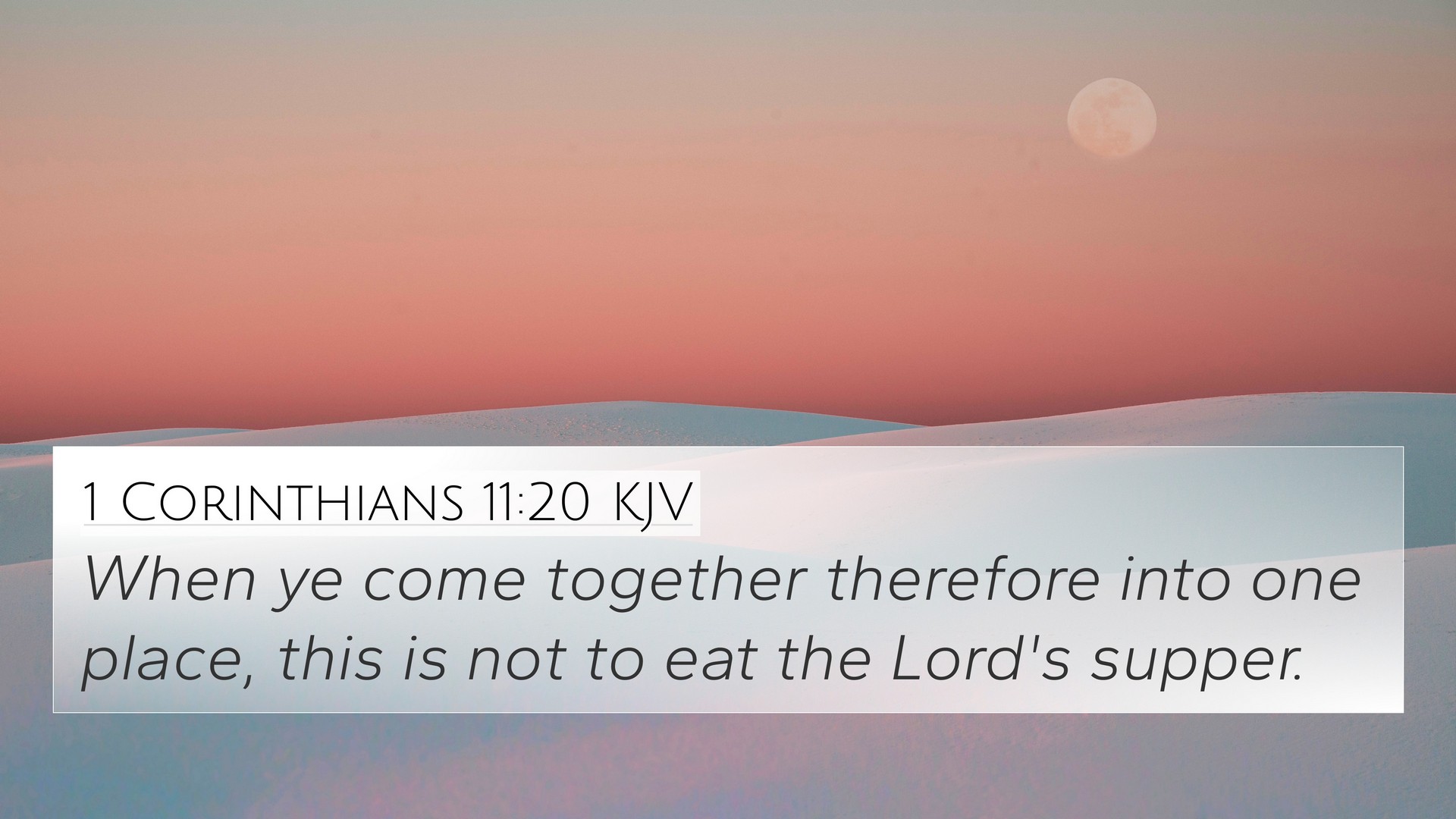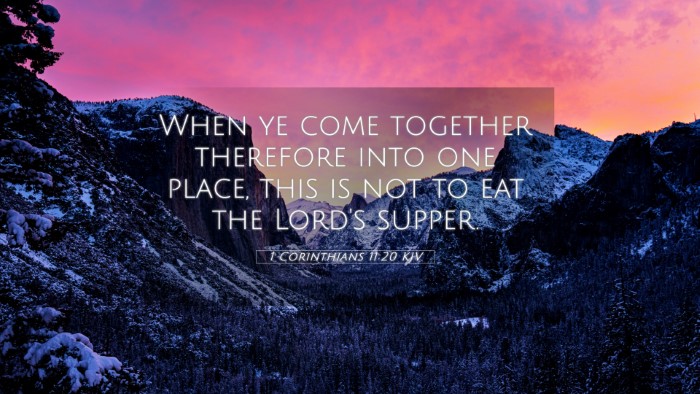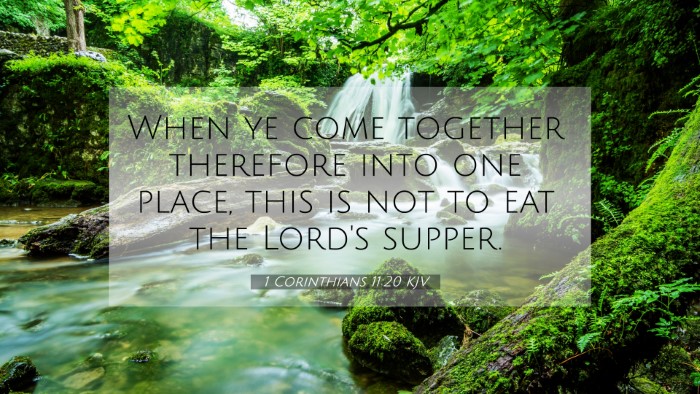Understanding 1 Corinthians 11:20
The verse 1 Corinthians 11:20 states:
"When you come together, therefore, into one place, this is not to eat the Lord's Supper."
Verse Meaning and Insights
This verse, situated within a broader discussion about the conduct and meaning of the Lord's Supper in the early Church, emphasizes the importance of understanding the nature and purpose of communal worship and the Eucharist.
Commentary Insights
-
Matthew Henry:
Henry addresses the improper manner of observing the Lord's Supper. He implies that the Corinthians were treating it as an ordinary meal rather than a sacred ordinance. This misunderstanding led to divisions and inequalities, which Paul sought to correct.
-
Albert Barnes:
Barnes emphasizes that the gathering for the Lord's Supper should not mirror a common meal. He argues that the distinction of the sacrament should be revered, reinforcing the need for unity and spiritual readiness among those who participate.
-
Adam Clarke:
Clarke points out that the Corinthians were partaking in a divided manner, suggesting a disregard for the sacred nature of the communion service. He highlights that the purpose of gathering should be focused on honoring Christ, not indulging in self-serving behavior.
Bible Cross-References
Several Bible verses connect with 1 Corinthians 11:20, illustrating parallels and enhancing our understanding of the significance of communion and collective worship:
- Matthew 26:26-28: The institution of the Lord's Supper, where Jesus emphasizes the meaning behind the bread and wine.
- 1 Corinthians 10:16-17: Paul highlights the communal aspect of communion, affirming that sharing the bread symbolizes unity among believers.
- Acts 2:42: The early Church devoted themselves to breaking bread together, illustrating communal worship's importance.
- Luke 22:19-20: Jesus’ direction to do this in remembrance of Him, reinforcing the intent behind communion.
- John 6:53-58: Jesus' teaching on the necessity of partaking of His body and blood, which speaks to the mystery and depth of communion.
- 1 Corinthians 11:27-29: Paul warns against partaking in an unworthy manner, tying back to the seriousness of the ordinance.
- Hebrews 10:25: This verse calls for believers to not forsake gathering together, aligning with the community aspect discussed in 1 Corinthians.
- Galatians 3:28: This scripture strengthens the theme of unity within the body of Christ, an essential aspect of communal worship.
- Romans 12:5: Advocates for believers being members one of another, emphasizing collective identity.
- Philippians 2:1-2: Calls for unity and humility, relevant to the attitudes believers should hold during communion.
Thematic Analysis
Thematically, 1 Corinthians 11:20 and the selected cross-references highlight the following key points:
- Communion as Sacred: The context of the Lord's Supper emphasizes that this act must be treated with reverence and understanding.
- Unity Among Believers: There's a recurring theme of unity, suggesting that communion is a reflection of the body of Christ and the need for harmony among its members.
- Remembrance of Christ: Each reference points back to the vital act of remembering Jesus and His sacrifice, the foundation of the sacramental celebration.
Practical Tools for Understanding
When studying 1 Corinthians 11:20 and related scriptures, consider utilizing these tools and methods:
- Bible Concordance: A powerful tool for locating specific verses and themes across various Bible translations.
- Bible Cross-Reference Guide: A guide that helps to connect different verses and expand the understanding of biblical themes.
- Cross-Reference Bible Study: Engaging with a variety of linked verses during personal study or in group settings for deeper insights.
- Bible Chain References: Following thematic chains of scripture helps to see the bigger picture of biblical teaching.
- Comprehensive Bible Cross-Reference Materials: Utilize books or software dedicated to biblical references for more extensive study.
Connecting Themes and Application
In conclusion, 1 Corinthians 11:20 calls believers to reflect on the manner of their worship and the significance of the Lord's Supper. Through careful examination of this verse and its cross-references, we gain insights into the nature of communal worship, the unity it should foster among believers, and the importance of remembrance in our faith practice.
This understanding can enrich sermon preparation, enhance personal devotion, and improve the way we connect with each other in fellowship. By cross-referencing with related scriptures, we can fully appreciate the weight of our gatherings and continue to grow in our collective faith journey.


